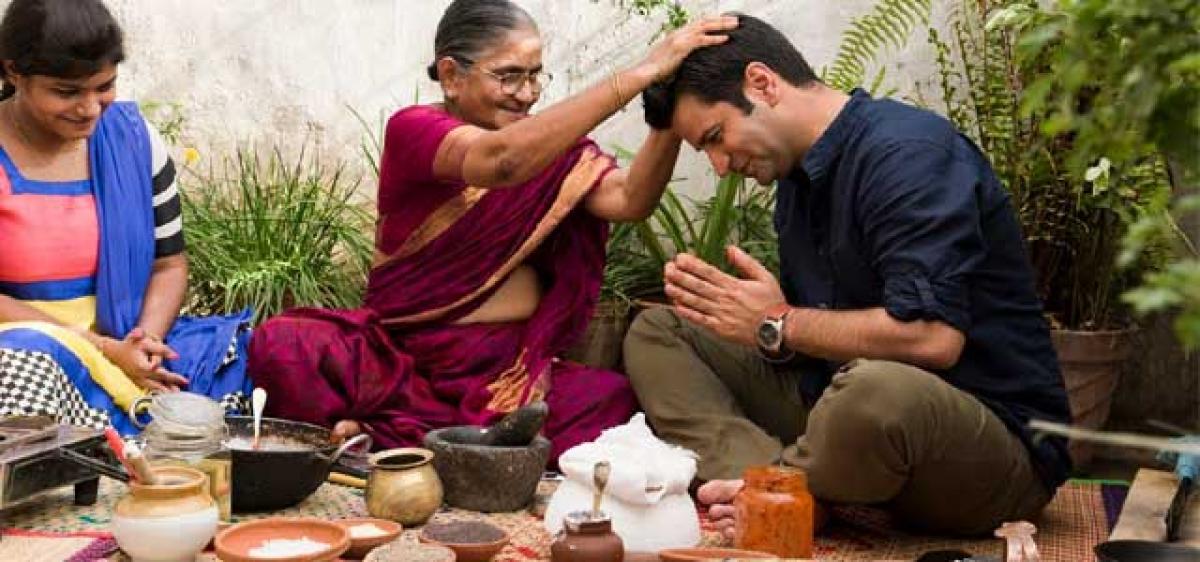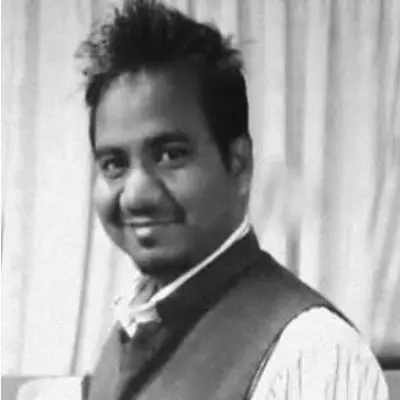Live
- BJP MP candidate Bharat Prasad visited the student who tried to commit suicide
- PM’s popularity in the fast lane: Autos with 'Har Dil Mein Modi' slogan spotted across Delhi
- Delhi-based political parties are like East India Company: Sukhbir Badal
- Golf: Diksha moves into Top-20 at South African Women’s Open
- KCR lashes out against BJP and Congress for destroying Telangana
- Dairy Science students visited the Milk cooling plant
- Moody feels Pant ahead in keepers’ race for T20 WC squad; Srikkanth picks Rahul over Samson as reserve keeper
- Thanking voters for extending 'unparalleled support' to NDA, PM Modi says second phase 'too good'
- Natural Relief for Menstrual Cramps: Beetroot Juice Recipe
- Asha Worker died in a road accident
Just In

Celebrity chef and restaurateur Kunal Kapur is best known as the host and judge of the TV series Master Chef India Season 1, 2 and 3 on Star Plus and Junior Master Chef India Season 1, and the host of a travel and food show, ‘The Foodie comes to America’, which was shot entirely in New York and California.
In addition to the stint on television, celebrity chef Kunal Kapur is working on a new book on Indian pickles. He shares his experiences on the sidelines of a session that he attended at Novotel Hyderabad Airport
Celebrity chef and restaurateur Kunal Kapur is best known as the host and judge of the TV series Master Chef India Season 1, 2 and 3 on Star Plus and Junior Master Chef India Season 1, and the host of a travel and food show, ‘The Foodie comes to America’, which was shot entirely in New York and California.
In the show, he discovers the journey of Indian food in the US. Kunal also hosted season 1 and season 2 of 'My Yellow Table' on NDTV Good Times and 'Pickle Nation', 'Fit Foodie', and 'Celebrating Togetherness' on Living Foodz.
Speaking about his path to being a celebrity chef he says, “The experience has been fantastic. Cooking as a profession, when I started, was not ever thought as a real profession. No parents advise their kids to grow up to become a chef.
They always say, become a doctor or engineer, etc. This profession was never glorified or talked about. People had very simple logic about it. It was always said that those who could not ever score good marks would get into such professions. I think TV has given that exposure for people to put up cooking not just as a job but as an art and passion - as something that is very important.”
“I don’t associate myself with the word celebrity chef because I don’t understand that word. I have been very lucky that I have been on television, and I got the opportunity to introduce my food and my cuisine to a wider audience. And if it inspires people then I think it as a great thing.”
Chef says that although his grandparents were averse to the idea of him being a chef; they were very supportive. “My grandparents were old school kind and I respect that. They had no idea about the word ‘chef’. They were like ‘halwai banna hai’. But my parents were open to the idea and with their support I am at this stage.”
“I was a commerce guy and I got a seat in Delhi University, but I told my parents that I do not want to do that and want to pursue hotel management; they supported that decision. They said that people don’t get a seat easily in DU and you got it and you are not doing it. I said yes, and they supported me,” he adds.
Chef Kunal is on a mission - to find unique pickles in the country - and he is on a tour across the nation. “I did a show called ‘Pickle Nation’ and that show came naturally to me. I thought the number of episodes, are not enough to cover the entire nation. So post the show I decided that I will continue on my journey and put a book together.
I travelled to almost 13-14 states in India. I discovered that there is so much to pickles. We think that pickle in one little odd thing on the plate, but the pickle is much more than that. Because, now, we are used to buying ready-made pickles from the market, so we don’t know much about them.
I discovered a different side of Indian food through pickles. I will research the remaining states and I will cover every state of India and put only most unusual pickles and stories and pickle-makers in a book. The recipe will be of people; it will not be my recipe.”
The chef says that on his journey he found an interesting pickle recipe in Hyderabad. “It’s Avakaya (mango) pickle. One aunty taught me about this pickle and it is completely opposite to the science of pickling. According to us, when you are pickling there should be no drop of water otherwise pickle will go bad. And after making the pickle you keep it under the sun for a couple of days for maturing.
And this particular lady used the regular masalas for the pickle without oil and she added two litres of water. I said ‘Amma what are you doing? This will go bad. One drop spoils the pickle and you are adding two litres of water’. With a firm expression, she said ‘No.
It will not’. She then put some limestone into it, and said limestone will preserve this. She put the pickle in an earthen pot and outside the earthen pot she applied limestone too and said that limestone keeps it really cold, and this should be stored in a very dark cold place because the sun is the enemy of this pickle.
And the mango pickle made in water without oil is very tasty and healthy. I learn making the pickle right here in Hyderabad. She said, it is a dying art as everybody is buying from the stores and nobody does this pickle anymore.”
“The book I am writing on pickles is not just about recipes; it is about stories of pickling. Ladies get together, eat, sing and those make such happy pictures and that is amazing. I go to a place and do research, meet people, write down the recipe and click a picture, and I am done. The book will take one-and-half year for me to complete,” chef shares.

© 2024 Hyderabad Media House Limited/The Hans India. All rights reserved. Powered by hocalwire.com







